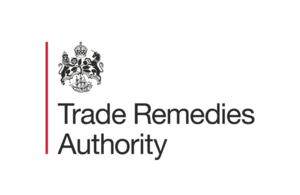Ukraine to remain exempt from hot rolled flat & coil steel tariff
The Government has accepted the TRA’s recommendation to extend its suspension of trade remedy measures on hot rolled flat and coil steel imports from Ukraine.

Trade remedy measures on imports of hot rolled flat and coil steel from Ukraine have been suspended since August 2022. The suspension was due to end on 30 May 2023. The UK Trade Remedies Authority proposed that the suspension on tariffs for Ukrainian imports should be extended for a further 12 months. This has now been agreed and the current suspension will extend for another 12 months from 30 May.
Steel that makes up a third of global production
This product covers hot-rolled flat products of iron, non-alloy and other alloy steel. It’s commonly used as a raw material for other types of steel and makes up almost 1/3 of all steel production globally.
The TRA is also reviewing anti-dumping measures on imports of these products from Russia, Ukraine, Brazil and Iran. In its initial conclusions, the TRA proposed to extend the measures on imports from China, Russia, Brazil and Iran but to remove them for Ukraine, as it concluded that dumping of products from Ukraine was unlikely to recur, due to reduction in Ukraine’s production capacity and limits on the ability to export caused by the war with Russia. The TRA also took into account Ukraine’s requirement to rebuild steel production facilities and domestic demand for steel to rebuild the country’s infrastructure.
Background:
- The TRA is the UK body that investigates whether trade remedy measures are needed to counter unfair import practices and unforeseen surges of imports. Trade remedies are usually applied at the border as a duty on imports.
- Trade remedy investigations were carried out by the EU Commission on the UK’s behalf until the UK left the EU. Over 40 EU trade remedy measures of interest to UK producers were transitioned into UK law when the UK left the EU and the TRA is currently reviewing each one to check if it is suitable for UK needs.
- Anti-dumping duties allow a country or union to take action against goods which are being sold at less than their normal value – this is defined as the price for ‘like goods’ sold in the exporter’s home market.
- These are one of the three types of trade remedies – along with countervailing and safeguard measures which address sudden, unforeseen floods of imports – that are allowed under World Trade Organisation (WTO) rules.